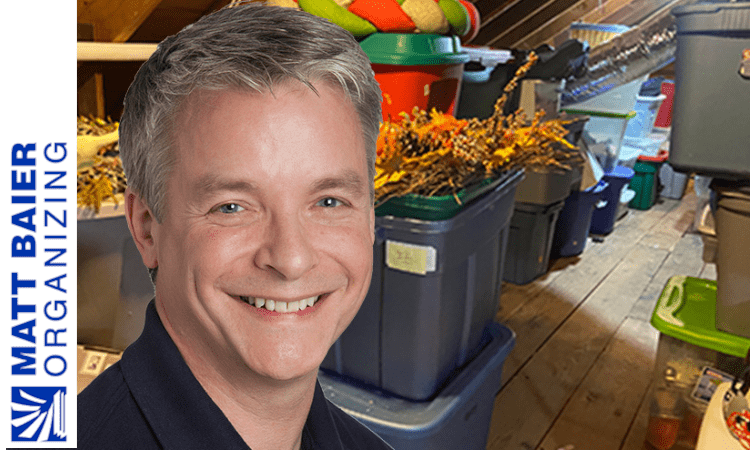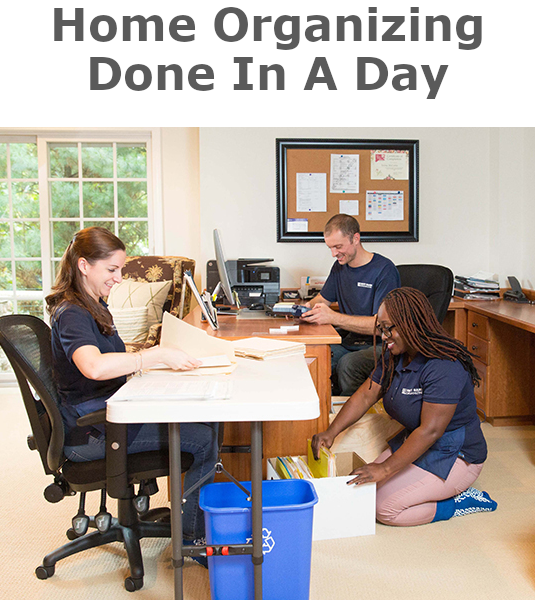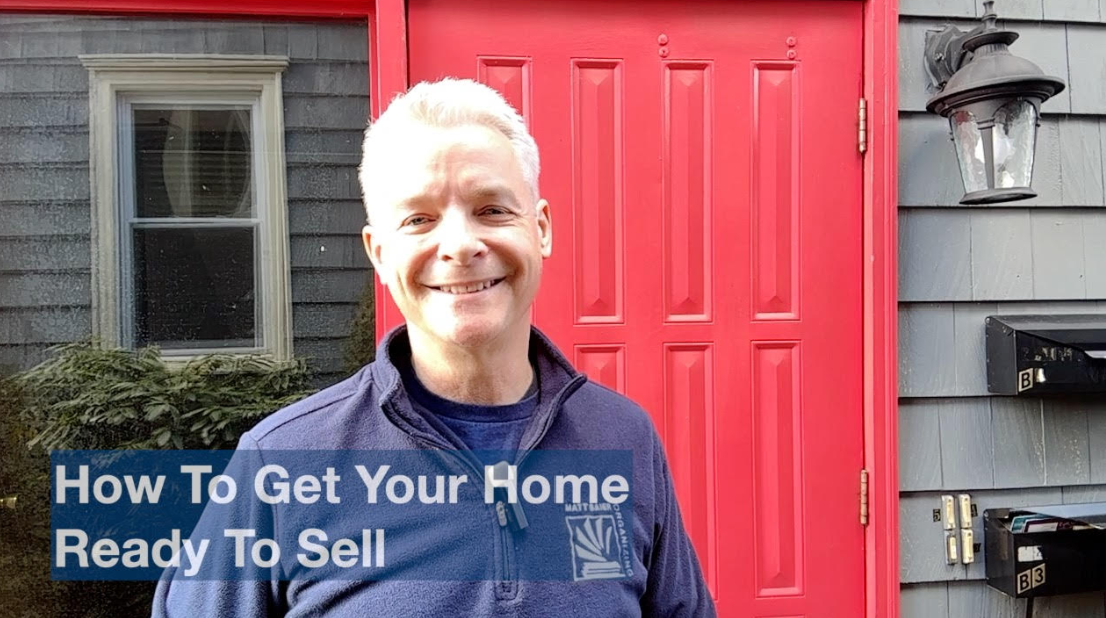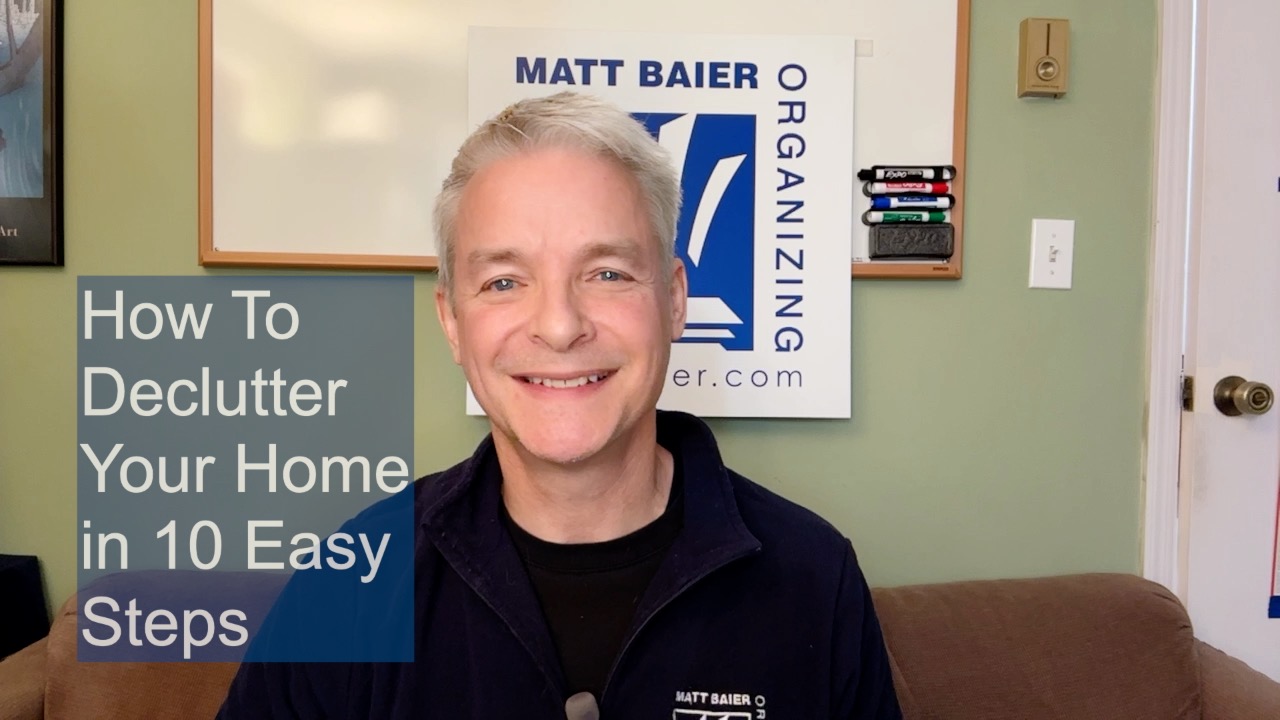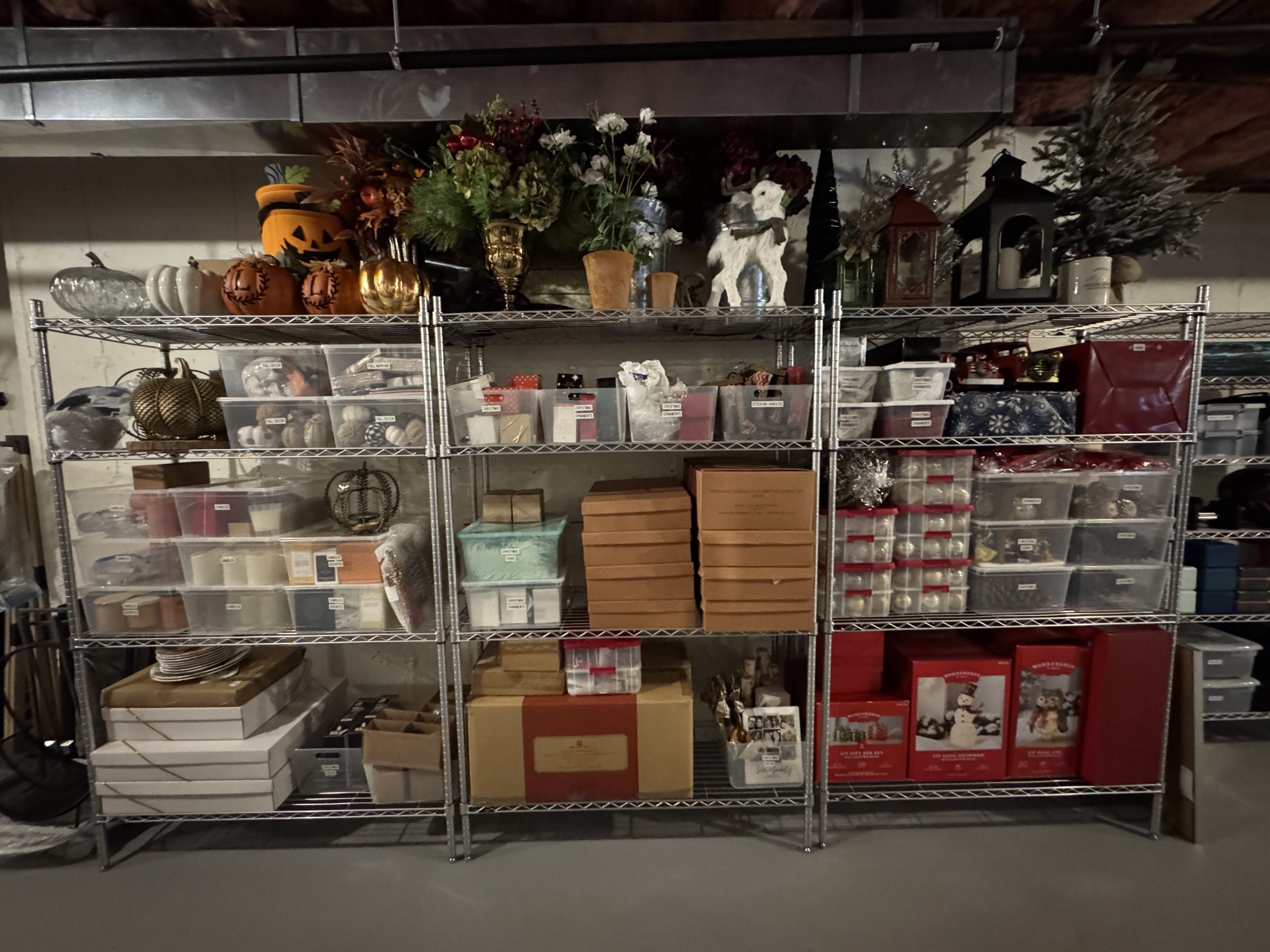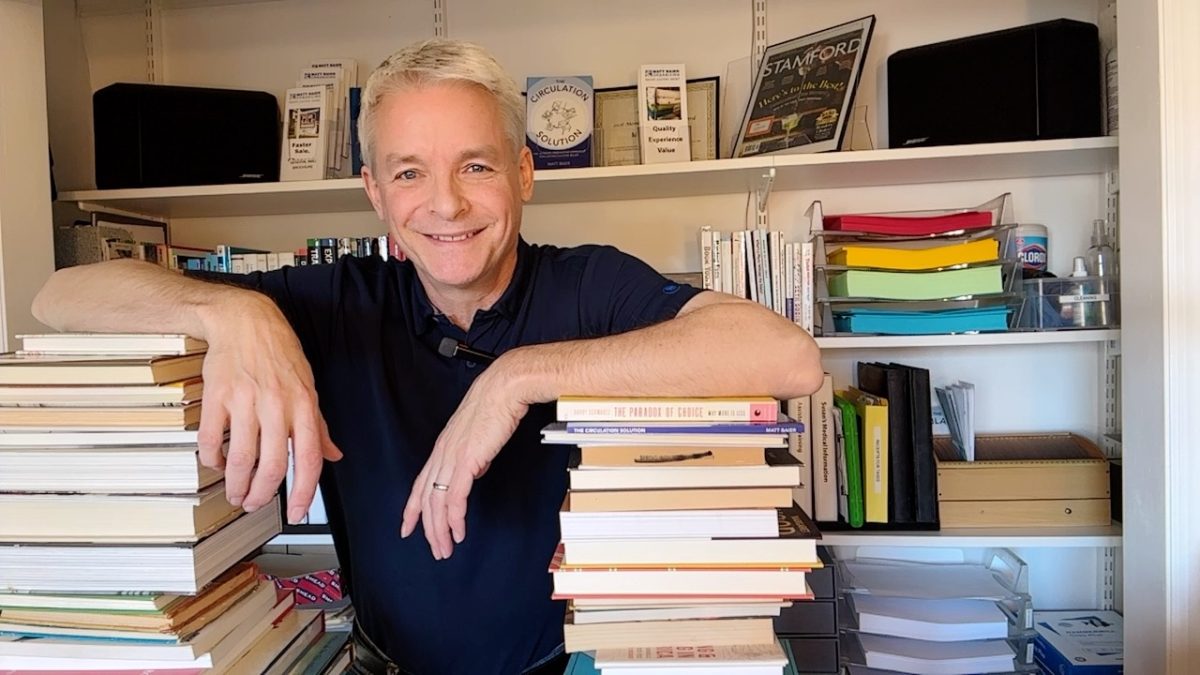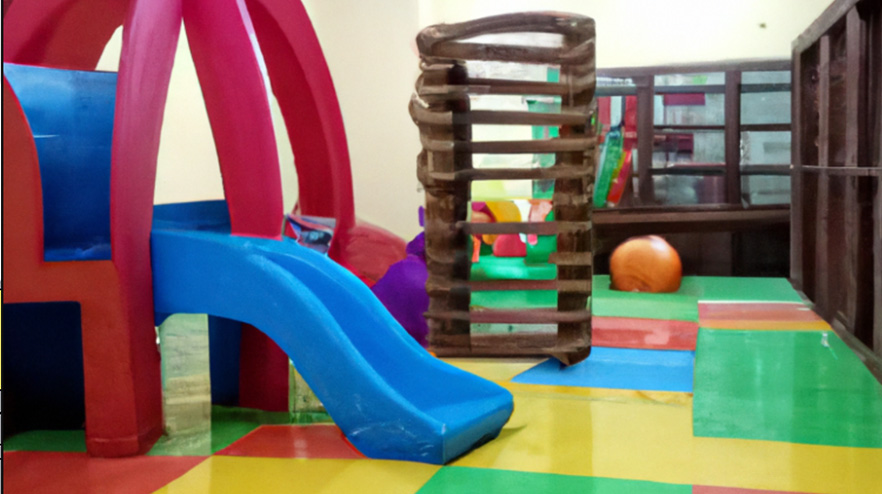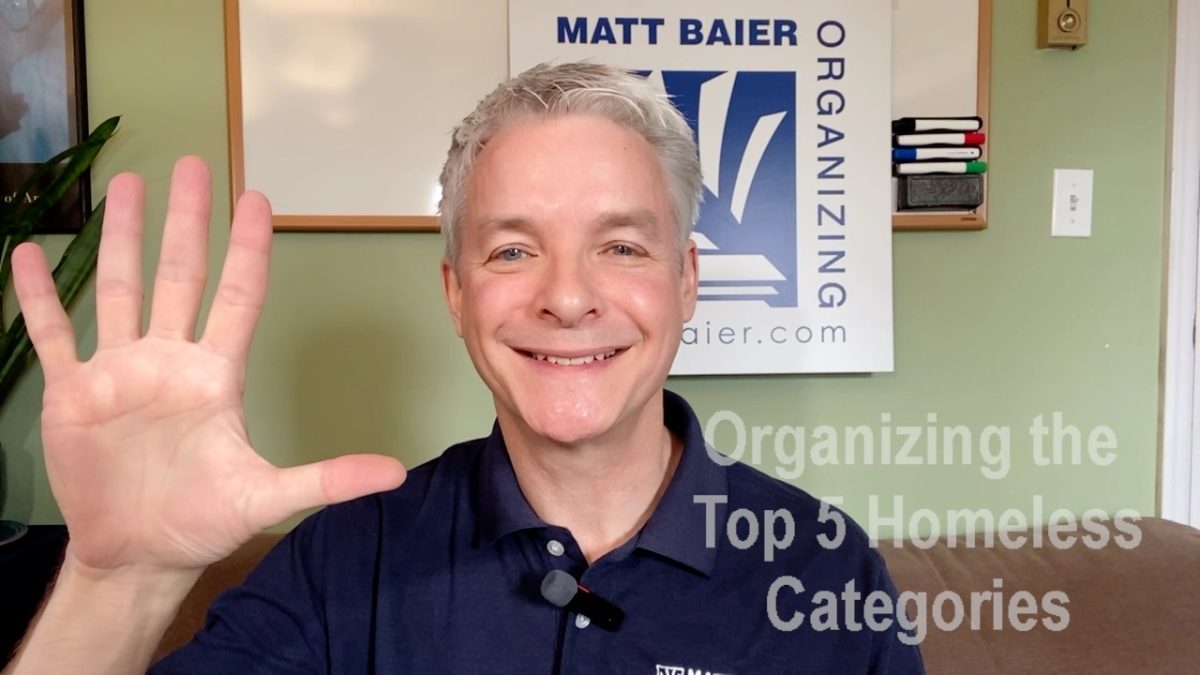You know the song “Silence is Golden?” After a loud day, silence is golden. It’s a relief. I wouldn’t quite say that empty is golden, not always. We certainly don’t want an emptybank account, for example, but sometimes empty is golden.
Clients often asks, upon emptying a bin, “What am I going to use this for now?” This always strikes me as odd, because it is the least of my concerns. Our organizing process is always about removing obstacles. Sometimes your bins are these obstacles.
Having an empty container is a good problem to have. Hang on to it with other empty containers until you see what your new needs are. However, sometimes the best container is no container at all.
Think about it. When is a container useful? It’s useful if you have a large quantity of small unrelated items, that create a confusing mess if un-contained. But if you have a very limited quantity, does the container help or hinder? If you canskip the container, do.
Sometimes we accumulate more stuff than we would, just because we have undedicated containers. I call these “clutter traps.” It’s a container that just becomes a place to put stuff that has no other home. A junk drawer is often a good example. Maybe you’ve got a stray bowl on your kitchen counter or a basket for mail. When undesignated items collect in clutter traps they get comfortable. They take up residence. This is a recipe for disorganization, because circulation is essential.
So giving up certain containers can create an emptiness that is golden. There are many golden gifts that come from empty space. Here are four.
1. Possibility
Recently my wife and I finally got around to emptying out our towers of old CDs. She asked “What are we going to put there now?” In the moment I didn’t have the answer. I am used to hearing this question from my clients. I was a little surprised to hear it coming from my own wife. Upon reflection, however, I realized the perfect answer: The empty CD towers will be replaced by openness. The value of the openness is that it is a part of a requirement to sell a home. Realtors always say that a home will sell faster when it is open and inviting to potential buyers. My wife has wanted to move out of our home for some time. That is a huge priority for her. So taking this step to create openness (emptiness) is a far greater priority than refilling the space.
Here’s another example. I always know when a treadmill has outworn its priority. It’s when it is being used for drying laundry. Usually, there’s an alternate exercise plan at that point. As expensive as the treadmill was, there’s greater value in the empty space left behind than the treadmill itself. Maybe the new possibility is a home office or a play room or a yoga space. These options may not exist while the treadmill is still there, but they have been liberated when it is gone.
2. Move-ability
One of my most consistent assertions is that your number one organizing tool is a clear work surface. A clear (or empty) work surface empowers you two do three things.
- spread out
- prioritize
- process
That is critical to keeping things circulating, which I alluded to before. An empty surface vastly increases your odds of staying organized. It is the best antidote to the clutter trap.
There is one place that I recommend leaving an open table that you might not expect. That is in the middle of a basement storage space. Even if you have everything organized in bins on shelves, an empty table is a great asset. That’s because you can open those bins up more comfortably on a surface. You can also process the contents easier. Finally, it’s a great place-holder to discourage piling boxes in the middle of the floor. You’re far better off processing the contents instead.
3. Invite-ability
Empty is golden, when you are experiencing C.H.A.O.S. What’s C.H.A.O.S.? Can’t. Have. Anyone. Over. Syndrome. I’m not sure who came up with that, but it’s brilliant, because I see this a lot. When clients have so many ugly piles that their home is uninviting, that’s C.H.A.O.S. It doesn’t matter what valuable stuff is in those piles. The net effect is “you’re not welcome.” That feeling may only be in your head, but if you’re not comfortable inviting, it doesn’t happen.
Don’t get me wrong. A completely empty, sterile environment is not necessary. That may not feel inviting either, but consider this. How welcome do you feel when you open a hotel room door? In most cases, there is minimal decoration or personality, but it still feels inviting. It’s clean, well-lit, and there’s plenty of empty space. You don’t have to struggle to find a spot to sit down, lie down, unpack, and spread out. Doesn’t that feel inviting and valuable? If not, compare that experience to unpacking in a tiny space with no surfaces. Emptiness matters.
4. Accessibility
We, of course, assign most of our closet’s value to the contents. Secondarily, we assign value to the shelves, bins, and other structures that contain those contents. That is where the closet’s value typically ends. However, I would like to add a third and vital closet content. That is the empty space that allows for accessibility. All too often this empty space is squandered on more contents, rendering the net contents inaccessible.
An empty closet floor means that you can set foot in it and comfortably access items on the shelves or closet rod. To give up this empty floor space means giving up accessibility.
Open space means options. Closed space means that you are out of options.
Open space means room for growth. Closed space restricts your growth.
Open space means breathing room. Closed space means you are suffocating.
Getting back to “silence is golden,” the phrase actually goes back to 1848 and it means “Keeping one’s mouth shut is a great virtue.” When you keep your mouth shut, your ears get a chance to let valuable knowledge in. When you create empty space, start thinking about what valuable things you can let in.
Are you starting to think of some of the “golden” gifts that intentional emptiness would grant you? Perhaps you have already given yourself some gifts of emptiness. What are they? I’d love to hear them!
Also, this post came from the MinimalQuest session that I moderated this month. If you found it to be thought-provoking, then please join us for our next session. Our March session will have a focus on minimalism and paperwork. Don’t miss it!
Please Share With Your Community

